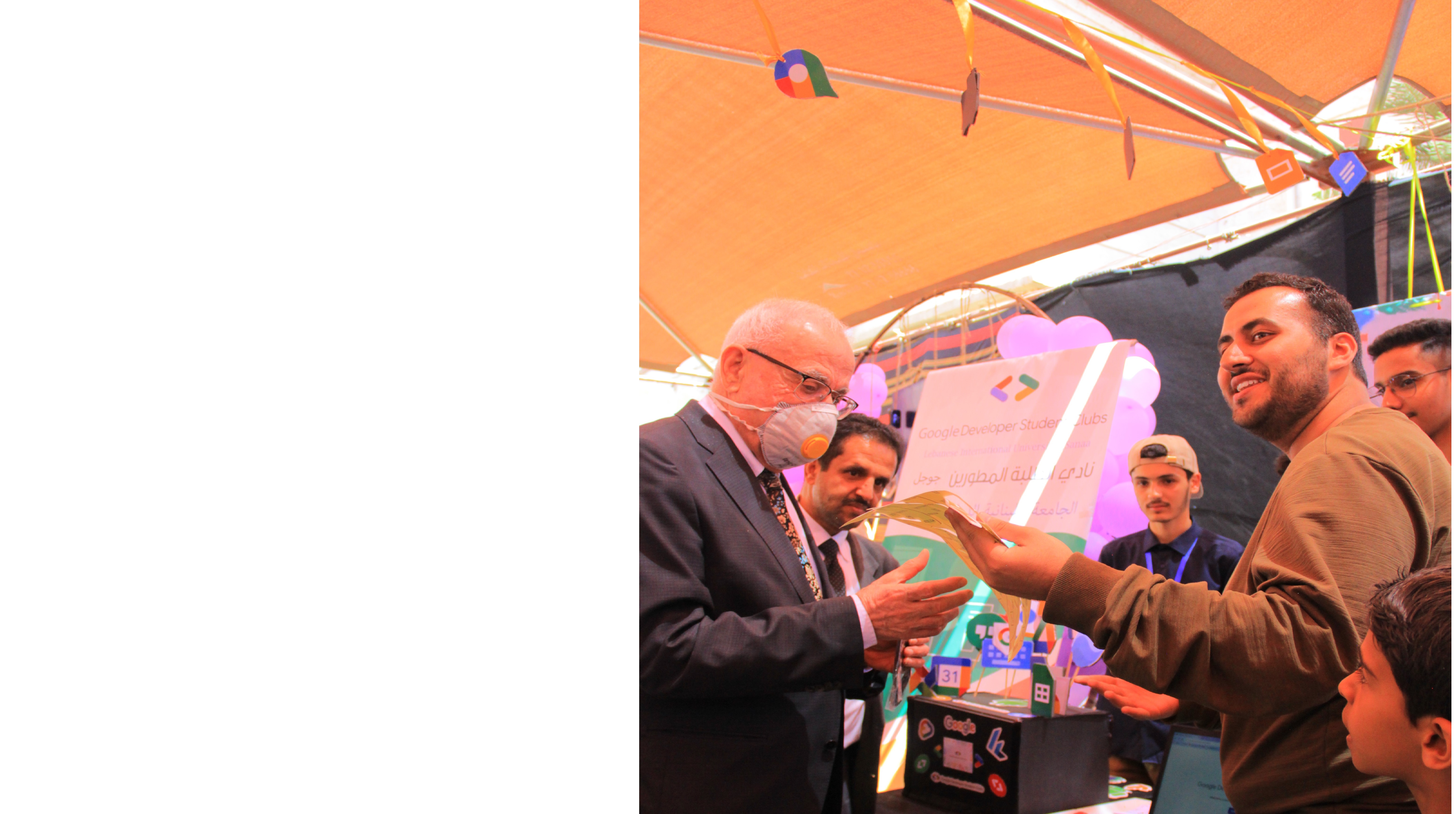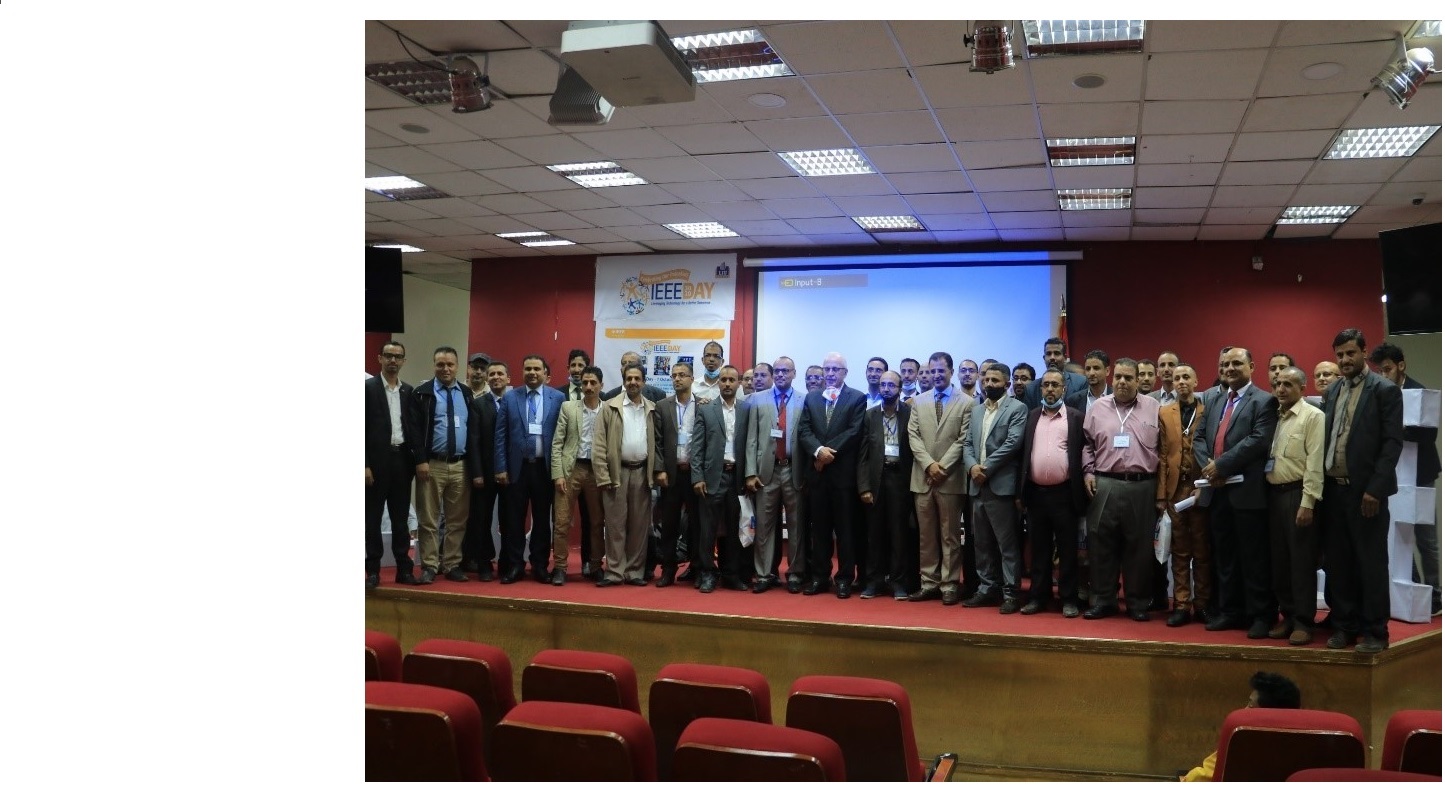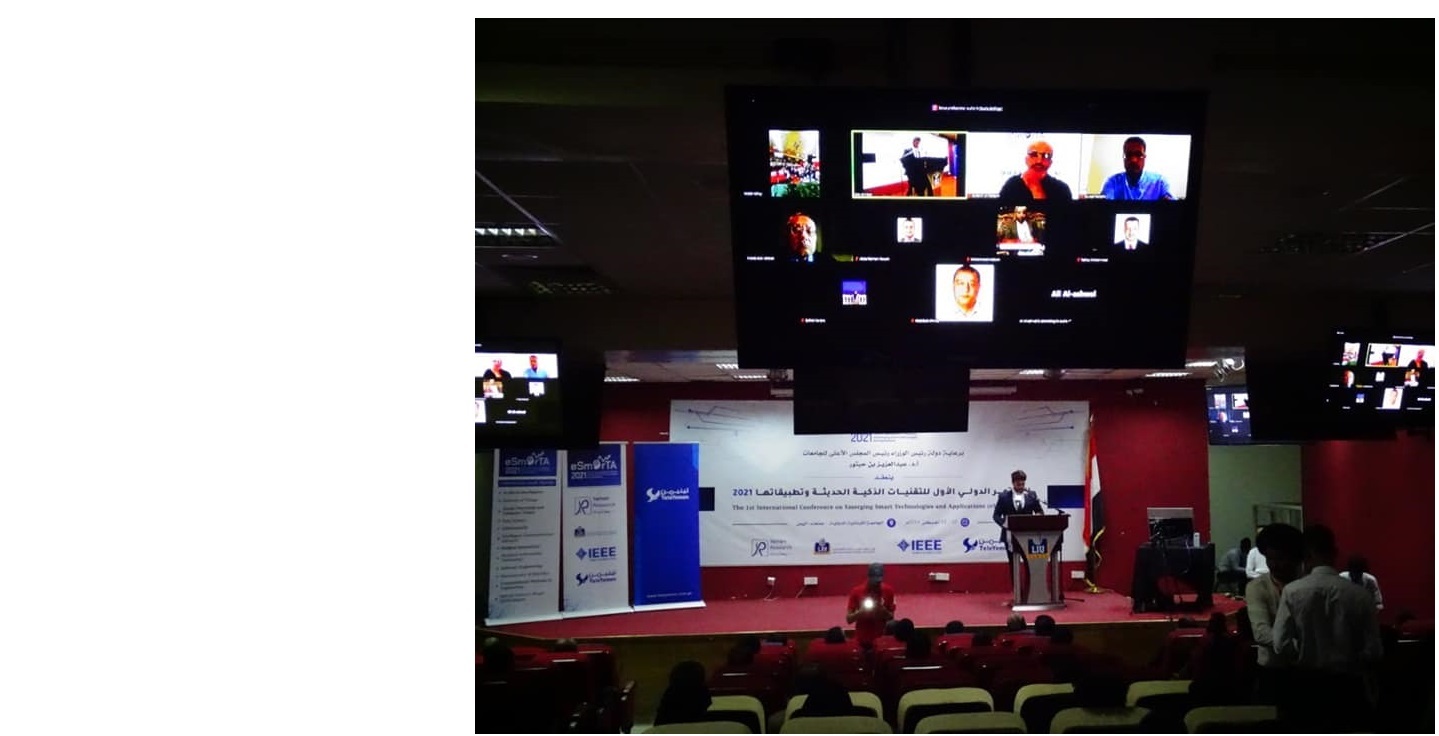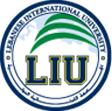|
Welcome to the School of Engineering and Information Technology (SEIT)
A Message from the Dean
The School of Engineering and Information Technology provides students with the education and training necessary to succeed in professional fields.
You made a smart choice when you decided to enroll in the SEIT since it will provide you with excellent technical and communication abilities that will set you apart
from other individuals on the market.
Lebanese International University engineering graduates are currently working in a wide variety of companies both locally and internationally.
Many of our graduates continue their education by enrolling in postgraduate and professional programs. They are known for their extraordinary abilities in the areas of
communication, problem-solving, and innovative design, respectively.
Abdulaziz Alhetar, PhD.
Dean, School of Engineering & Information Technology
Email: alhetar.aziz@ye.liu.edu.lb
|
SEIT Vision
To produce highly qualified graduates and innovate in applied science, meeting the developmental needs of society.
|  |
|
SEIT Mission
To produce highly qualified graduates and innovation applied science, meeting the developmental needs of society.
|  |
|
SEIT Objectives
1.Delivering and administering innovative engineering and information technology programs that undergoes
undergo continuous assessment and revision;
2.Providing an advancing knowledge leadership role in educational research and in outreach;
3.Developing and delivering quality service courses in engineering and information technology.
4.Providing an accessible, modern education in engineering and science for future, interdisciplinary leaders; and
5.Facilitating life-long learning in engineering and information technology.
|  |
Programs of Study
The School of Engineering & Information Technology offers programs leading to the degrees in all major areas listed below.
| Program Type |
Program Title |
Credits |
| Undergraduate |
Biomedical Engineering |
139 |
| Undergraduate |
Architecture Engineering |
168 |
| Undergraduate |
Information Technology |
130 |
|
Please click on the desired program.
Mission
Our mission is to educate undergraduate students and provide them with multi-disciplinary training for productive careers in the health-related areas of industry.
To achieve our educational mission, a curriculum that integrates engineering sciences, life sciences, clinical medicine, research, and engineering design is offered.
Cultivating our students’ problem-solving and communication skills, promoting their ability to think critically and independently, and helping them to understand
scientific and engineering approaches through a four-year sequence of courses representing the scope of the Biomedical Engineering program. In addition, the program
encourages graduate students to continue their post-graduate education.
Objectives
1. To qualify graduates in the field of biomedical engineering and make them able to develop their careers and serve their country.
2. To qualify graduates with the ability to carry out theoretical and applied studies to serve society and participate in finding scientific solutions to its problems in the field of biomedical engineering.
3. To commit and uphold high ethical and professional conduct in the education and practice of engineering solutions in global, economic, environmental, and societal contexts.
4. To continue development according to modern quality assurance standards and encourage students’ participation in various activities.
5. To pursue life-long learning to enhance students’ undergraduate degrees through formal education and/or certification in order to improve their careers.
The Program’s Intended Learning Outcomes
A. Knowledge and Understanding
A1. Describing mathematics, physics, and basic engineering sciences (electricity, electronics, mechanics, and computer science).
A2. Describing physiological and anatomical structure of the human body.
A3. Maintaining the ability to apply engineering design to produce solutions that meet specified needs while taking into account the public health, safety, and welfare, as well as global, cultural, social, environmental, and economic factors.
A4. Recognizing ethical and professional responsibilities in engineering situations and making informed judgments.
A5. Identifying inter-disciplinary knowledge and skills in engineering and life sciences needed to cope with the dynamic nature of the community.
A6. Reflecting a broad technical and social outlook, the right working attitude, and professionalism.
A7. Applying project management techniques in the design maintenance and implementation of the biomedical system.
B. Intellectual Skills
B1. Formulating and solving complex engineering problems by applying principles of engineering, science, and mathematics.
B2. Categorizing biological systems and parts based on their functions.
B3. Integrating components from different materials to construct a useful biomedical product.
B4. Composing and developing innovative solutions to practical health-care problems.
B5. Analyzing and testing hypotheses scientifically.
C. Professional and Practical Skills
C1. Regulating the creative and technical ability to turn designs into products.
C2. Solving engineering problems using appropriate tools and computer software.
C3. Building the ability to empathize with patients.
C4. Using standard approaches while designing and integrating biomedical systems.
C5. Liaising with medical, engineering, and scientific staff.
C6. Manipulating and sorting data in variety of ways.
D. General and Transferable Skills
D1. Maintaining and modifying equipment to ensure its safety, reliability, and efficiency.
D2. Undertaking relevant research.
D3. Maintaining a coherent group work spirit and sharing learning knowledge.
D4. Demonstrating an awareness of ethical principles and issues.
D5. Building a good attention skill to details.
D6. Writing reports and documentation.
D7. Having the ability to communicate effectively with a range of audiences.
D8. Measuring the performance of medical devices and equipment.
Mission
To equip the students with the fundamental skills required to meet the demands of the communications industry.
The program is designed to provide the required theoretical grounding and the practical skills required in a rapidly evolving information processing environment and
to invoke the desire and ability of life-long learning in our graduates to pursue successful careers in communication engineering and postgraduate studies.
Objectives
1. To qualify graduates in the field of communications engineering to develop their careers and serve their country.
2. To qualify graduates with the ability to carry out theoretical and applied studies to serve society and participate in finding scientific solutions to its problems in the field of communications engineering.
3. To commit and uphold high ethical and professional conduct in the education and practice of engineering solutions in global, economic, environmental, and societal contexts.
4. To continue development according to modern quality assurance standards and encourage students’ participation in various activities.
5. To pursue life-long learning to enhance their undergraduate degree through formal education and/or certification in order to improve their careers.
The Program’s Intended Learning Outcomes
A. Knowledge and Understanding
A1. Describing mathematics, physics, and basic engineering sciences in the field of communication engineering.
A2. Applying detailed knowledge and understanding of the essential facts, concepts, principles, and theories of communications devices, systems, and signals.
A3. Identifying the professional ethics and responsibilities of communication engineering.
A4. Recognizing practical and theoretical concepts of communication systems for sustainable development.
A5. Applying appropriate computer-based methods for modelling and analyzing engineering problems relevant to the communications industry.
A6. Applying project management techniques in the design, maintenance, and implementation of telecommunication systems.
B. Intellectual Skills
B1. Analyzing and solving problems in electronics, systems, and communications.
B2. Integrating relevant mathematical skills, showing familiarity with methods of mathematical modelling and analysis.
B3. Analyzing, interpreting, and using data including those arising from simulations.
B4. Analyzing and critically evaluating experimental results.
B5. Formulating and testing hypotheses.
C. Professional and Practical Skills
C1. Using different computer programming languages and software tools for solving telecommunication engineering problems.
C2. Designing and conducting offline and real-time simulations in different parallel and distributed process-related disciplines.
C3. Manipulating and sorting data and presenting the data in a variety of ways.
C4. Designing and implementing switching technologies, wide area networking technologies, and policies.
C5. Using scientific literature and research for information effectively to develop ideas further.
C6. Utilizing statistics/probability, transform methods, or applied differential equations to support telecommunication systems and wide area networks.
D. General and Transferable Skills
D1. Working effectively as part of a team.
D2. Effectively communicating with other professionals orally and in writing through e-mail as well as written reports.
D3. Managing time and resources.
D4. Recognizing the need for and an ability to engage in life-long learning.
Mission
To graduate engineering students with fundamental technical knowledge and practice of their career and communication skills to develop innovative solutions
to complex technological problems.The program prepares them to work as professional engineers or participate in graduate university programs.
Objectives
1. To qualify graduates in the field of electrical engineering to develop their careers and serve their country.
2. To qualify graduates with the ability to carry out theoretical and applied studies to serve society and participate in finding scientific solutions to its problems in the field of electrical engineering.
3. To commit and uphold high ethical and professional conduct in the education and practice of engineering solutions in global, economic, environmental, and societal contexts.
4. To continue development according to modern quality assurance standards and encourage students’ participation in various activities.
5. To pursue life-long learning to enhance their undergraduate degree through formal education and/or certification in order to improve their careers.
The Program’s Intended Learning Outcomes
A. Knowledge and Understanding
A1. Describing mathematics, physics, and basic engineering sciences in the field of electrical engineering.
A2. Applying detailed knowledge and understanding of the essential facts, concepts, principles, and theories of electrical machines, power systems, and control mechanisms.
A3. Identifying professional ethics and responsibilities in electrical engineering.
A4. Recognizing practical and theoretical concepts of power systems for sustainable development.
A5. Applying appropriate computer-based methods for modelling and analysis of engineering problems relevant to the electrical industry.
A6. Applying project management techniques in the design, maintenance, and implementation of the electrical system.
B. Intellectual Skills
B1. Analyzing and solving problems in electricity, electronics, control systems, and power loading.
B2. Integrating relevant mathematical skills, showing familiarity with methods of mathematical modelling and analysis.
B3. Analyzing, interpreting, and using data including those arising from simulations.
B4. Analyzing and critically evaluating experimental results.
B5. Formulating and testing hypotheses.
C. Professional and Practical Skills
C1. Using different computer programming languages and software tools for solving electrical engineering problems.
C2. Utilizing differential and integral calculus, as a minimum, to characterize the performance of electrical/electronic systems.
C3. Manipulating and sorting data and presenting the data in a variety of ways.
C4. Using the engineering approach to the solution of problems relevant to the electrical field.
C5. Using scientific literature and research for information effectively to develop ideas further.
D. General and Transferable Skills
D1. Working effectively as part of a team.
D2. Effectively communicating with other professionals orally and in writing through e-mail as well as written reports.
D3. Managing time and resources.
D4. Recognizing the need for and an ability to engage in life-long learning.
Mission
Objectives
The Program’s Intended Learning Outcomes
Knowledge and Understanding
Intellectual Skills
Professional and Practical Skills
General and Transferable Skills
Mission
To prepare qualified individuals for support and management positions in the IT field by providing theoretical knowledge and practical training in the key
IT-related technologies, tools, and practices to serve the community and the profession.
Objectives
1.To offer a pioneering, high-quality IT educational program that includes the knowledge, skills, and intellectual concepts required to meet market needs through:
•Providing students with all basic scientific, computer, and information technology knowledge.
•Developing students’ envision, logical thinking, and analytic abilities.
•Developing students’ innovative and creativity in designing and implementing IT solutions.
2.To prepare qualified IT professionals to meet local and regional community needs and gain their confidence.
3.To allow students to demonstrate ethical behavior as an IT professional and sensitivity to the impact of technology on society.
4.To allow students to adapt to the high-paced and fast changing information technology environment.
5.To engage students in life-long learning and professional development.
The Program’s Intended Learning Outcomes
A. Knowledge and Understanding
A1. Demonstrating an understanding of appropriate concepts, theories, mathematical foundations, models, and techniques related to the IT discipline.
A2. Explaining the knowledge of computer and communication network security and management, project management methods/tools, database and information management system, operating systems, and system integration and architecture.
A3. Describing the principles of programming foundation, problem-solving, decision-making, web and mobile applications, human computer interaction, and system administration tools and techniques.
B. Intellectual Skills
B1. Proposing appropriate IT-based solutions and integrating them effectively into the user and organization environment.
B2. Analyzing the impacts of computing on organizational objectives and customer needs, and considering them during the analytical processing, selection, integration, configuration, and administration of computer-based systems.
B3. Evaluating functions and related issues with a focus on IT solutions to design and develop IT tools and techniques to assist in taking better decisions.
C. Professional and Practical Skills
C1. Employing the concepts and principles of computational approaches, computing systems, communication, and modern technologies in the problem-solving process effectively.
C2. Using IT infrastructure approaches and tools to specify, design, implement, maintain, develop, and document appropriate solutions.
C3. Working effectively on IT-project management, programming skills, implementation or simulation tools, operating systems with different platforms and different applications, including web, mobile, database, network, and multimedia applications.
D. General and Transferable Skills
D1. Working effectively within a team or individually to accomplish a common goal.
D2. Engaging in a life-long self-learning, time management, and leadership, as well as communicating effectively with specialists and non–specialists to solve organizational problems.
D3. Writing and presenting technical reports and deliverables effectively.
D4. Demonstrating efficient skills in IT-project management, research capability, creative thinking, and interpersonal relationship skills based on professional ethics, privacy, security, and legal responsibility.
|
|
|
|
| |

|
|
© 2024 by Lebanese International University. All rights reserved.
|
|
|
|
